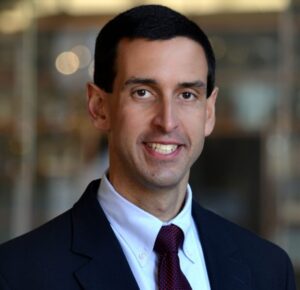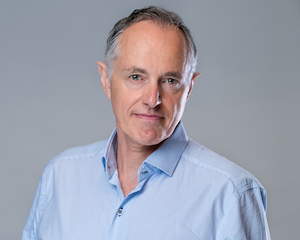
WE FUND THE GAP TO KEEP RESEARCH MOVING FORWARD
We have funded
$1,715,197
in grants for cancer research and trials…
Supporting
13
new cancer therapies…
Supporting
5
new clinical trials…
We Fund Groundbreaking Research
Our Research Advisory Team seeks out promising research and new drug development for pediatric sarcomas that are moving toward FDA approval and clinical trials. Our guidelines for selecting projects are (1) it must be less toxic and personalized, (2) it must target the cancer cells, keeping healthy tissue and organs safe from damage (3) enhance and harness the immune system to teach our bodies how to fight the cancer.
One Step Closer to a Cure for Sarcomas

In May 2023, RCF granted $100,000 to Jason Yustein’s lab at Emory University. Yustein and his colleagues are working to understand the molecular pathways of sarcomas and the identification of new therapeutic avenues to improve survival rates.
Sadly, research efforts over the past 40 years have done little to improve patient outcomes for sarcomas. The Yustein laboratory has tremendous experience in merging innovative murine models including novel, genetically engineered mouse models of pediatric sarcomas and patient-derived samples towards garnering molecular insights into the origins of Ewing sarcoma cells and their response and resistance to new therapies.
With this grant, Yustein’s lab will conduct a set of animal experiments to validate the potential efficacy of Myr5A, a targeted delivery lipid nanoparticle, in combination with two new therapies for Ewing sarcoma and DSRST. The goal is to develop targeted anti-tumor agents with excellent efficacy and significantly reduced toxicity.
RCF Awards Grant to Further Immunotherapy Research for Ewing Sarcoma

RCF has awarded a grant to Dr. Poul Sorensen and his team at the British Columbia Cancer Research Centre to develop and optimize Immunotherapy strategies that enhance T cell therapeutic targeting of IL1RAP in Ewing sarcoma. They will build on their previous work to enhance the in vivo efficacy of our IL1RAP targeting CAR T cells using combination therapies, previously demonstrated by other groups to improve cell therapy outcomes.
Dr. Sorensen and team will also optimize the development of so-called antibody drug conjugates (ADCs), comprised of proprietary antibodies to IL1RAP linked to multiple drugs (payloads) known for their high efficiency in Ewing sarcoma. Finally, they will generate bispecific T cell engagers (BiTEs) directed against IL1RAP and CD3 (a T cell protein) and incorporate them into a recombinant adeno-associated virus, a novel single-dose solution for achieving prolonged systemic BiTE delivery in vivo. With these approaches, they aim to develop new reagents targeting a key metabolic regulator and driver of metastasis in Ewing sarcoma.
Currently, the ADC approach shows the most promise and has proven to be effective in mice with little to no toxicity. Dr. Sorenson is currently looking into drug development for a clinical trial.
Dr. Kevin Hay, Dr. Wei Li, Dr. Dimiter Dimitrov, and Timothy P. Cripe, MD, PhD, FAAP are collaborating with Dr. Sorensen on this project.
“We are absolutely delighted to be working with the Rutledge Cancer Foundation on this exciting project, as we share their strong desire to improve the outcomes for Ewing sarcoma patients through the power of basic and translational research.” – Dr. Poul Sorensen
Cleveland Clinic begins landmark work to develop a Ewing sarcoma vaccine

RCF, in collaboration with two other foundations, Little Warrior and William J. Riley Foundation, have awarded a grant to develop an mRNA vaccine for Ewing sarcoma. This landmark effort is driven by Dr. Timothy Chan, head of the Cleveland Clinic Immunology Department. Dr. Chan has identified a number of Ewing antigens that are highly sensitive to immunotherapy. He will use these findings to develop a vaccine that can identify Ewing cancer cells and boost the immune system to eradicate them. Other potential therapies such as CarT cell therapy are also being considered. They hope to have a clinical trial in the first part of 2024.
Qana Therapeutics Opens lab in Austin

With the help of RCF funding, Qana Therapeutics has opened a lab in Austin at the ACC Bioscience Incubator(ABI). Additionally, Qana has hired a full-time Senior Scientist, Dr. Christian Boada, to develop and optimize multiple drugs in combination with the nanoparticle, to treat cancer with a targeted and personalized approach, with far less toxicity. Qana is currently developing a novel anthracyline.
“This grant from RCF has allowed us to accelerate our efforts to develop better treatments for patients with sarcomas and other solid tumor cancers,” replied Jim Graham, co-founder and CEO of Qana Therapeutics.
RCF Brings Together Top Notch Researchers and Biotech Industry for Groundbreaking Sarcoma Drug Development

In 2015, Executive Director, Laura Rutledge, was introduced to a promising lipid nanoparticle that could be utilized as a potential drug delivery that targets cancer cell. RCF sponsored research to develop novel drugs to be carried by the nanoparticle to target Ewing sarcoma. Dr. Andras Lacko, at University of North Texas Health Science Center, conducted the early stage research. Laura then introduced a colleague, Jim Graham, CEO of Qana Therapeutics, who is experienced in moving new therapies into clinical trials and FDA approval to further advance the work.
RCF also brought some of the brightest pediatric researchers together to move this project forward. Dr. Jason Yustein MD, PhD, formally head of the Faris D. Virani Ewing Sarcoma Center at Baylor College of Medicine. Yustein is now Director of Research for the Solid Tumor Team at the AFLAC Cancer and Blood Disorders Center. Also on the team is Greg Aune, MD PhD at UT Health, Greehey Pediatric Cancer Research Institute. Dr. Aune focuses on the long term toxicity (especially the heart) of the currently used chemotherapies and radiation.
The team has proven that the nanoparticle delivery is targeted to cancer cells that have SRB1 receptors, a common marker in many cancer cells. Once the pre-clinical work with the novel drug and nanoparticle shows efficacy and less toxicity, the plan is to move it into patient clinical trials.
OUR RESEARCH PARTNERS
We Fund Clinical Trials
WHAT IS A CLINICAL TRIAL?

Clinical trials are research studies that explore whether a medical strategy, treatment, or device is safe and effective for humans. These studies also may show which medical approaches work best for certain illnesses or groups of people. Clinical trials produce the best data available for healthcare decision-making.

For some patients, clinical research trials represent an avenue for receiving promising new therapies that would not otherwise be available. Patients with difficult to treat or currently “incurable” diseases, such as AIDS or certain types of cancer, may want to pursue participation in clinical research trials if standard therapies are not effective. Clinical research trials are sometimes lifesaving.










